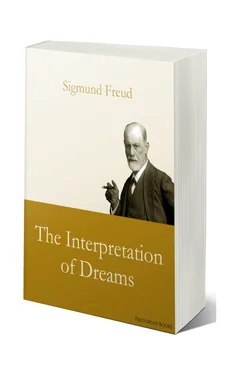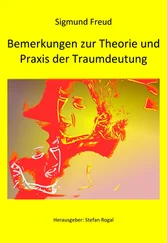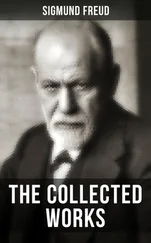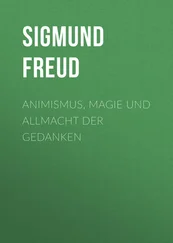Delbœuf narrates from his own experience an especially impressive example of this kind. He saw in his dream the courtyard of his house covered with snow, and found two little lizards half-frozen and buried in the snow. Being a lover of animals, he picked them up, warmed them, and put them back into a crevice in the wall which was reserved for them. He also gave them some small fern leaves that had been growing on the wall, which he knew they were fond of. In the dream he knew the name of the plant: Asplenium ruta muralis. The dream then continued, returning after a digression to the lizards, and to his astonishment Delbœuf saw two other little animals falling upon what was left of the ferns. On turning his eyes to the open field he saw a fifth and a sixth lizard running into the hole in the wall, and finally the street was covered with a procession of lizards, all wandering in the same direction, &c.
In his waking state Delbœuf knew only a few Latin names of plants, and nothing of the Asplenium. To his great surprise he became convinced that a fern of this name really existed and that the correct name was Asplenium ruta muraria, which the dream had slightly disfigured. An accidental coincidence could hardly be considered, but it remained a mystery for Delbœuf whence he got his knowledge of the name Asplenium in the dream.
The dream occurred in 1862. Sixteen years later, while at the house of one of his friends, the philosopher noticed a small album containing dried plants resembling the albums that are sold as souvenirs to visitors in many parts of Switzerland. A sudden recollection occurred to him; he opened the herbarium, and discovered therein the Asplenium of his dream, and recognised his own handwriting in the accompanying Latin name. The connection could now be traced. While on her wedding trip, a sister of this friend visited Delbœuf in 1860—two years prior to the lizard dream. She had with her at the time this album, which was intended for her brother, and Delbœuf took the trouble to write, at the dictation of a botanist, under each of the dried plants the Latin name.
The favourable accident which made possible the report of this valuable example also permitted Delbœuf to trace another portion of this dream to its forgotten source. One day in 1877 he came upon an old volume of an illustrated journal, in which he found pictured the whole procession of lizards just as he had dreamed it in 1862. The volume bore the date of 1861, and Delbœuf could recall that he had subscribed to the journal from its first appearance.
That the dream has at its disposal recollections which are inaccessible to the waking state is such a remarkable and theoretically important fact that I should like to urge more attention to it by reporting several other "Hypermnesic Dreams." Maury relates that for some time the word Mussidan used to occur to his mind during the day. He knew it to be the name of a French city, but nothing else. One night he dreamed of a conversation with a certain person who told him that she came from Mussidan, and, in answer to his question where the city was, she replied: "Mussidan is a principal country town in the Département de La Dordogne." On waking, Maury put no faith in the information received in his dream; the geographical lexicon, however, showed it to be perfectly correct. In this case the superior knowledge of the dream is confirmed, but the forgotten source of this knowledge has not been traced.
Jessen tells (p. 55) of a quite similar dream occurrence, from more remote times. "Among others we may here mention the dream of the elder Scaliger (Hennings, l.c., p. 300), who wrote a poem in praise of celebrated men of Verona, and to whom a man, named Brugnolus, appeared in a dream, complaining that he had been neglected. Though Scaliger did not recall ever having heard of him, he wrote some verses in his honour, and his son later discovered at Verona that a Brugnolus had formerly been famous there as a critic.
Myers is said to have published a whole collection of such hypermnesic dreams in the Proceedings of the Society for Psychical Research, which are unfortunately inaccessible to me. I believe every one who occupies himself with dreams will recognise as a very common phenomenon the fact that the dream gives proof of knowing and recollecting matters unknown to the waking person. In my psychoanalytic investigations of nervous patients, of which I shall speak later, I am every week more than once in position to convince my patients from their dreams that they are well acquainted with quotations, obscene expressions, &c., and that they make use of these in their dreams, although they have forgotten them in the waking state. I shall cite here a simple case of dream hypermnesia because it was easy to trace the source which made the knowledge accessible to the dream.
A patient dreamed in a lengthy connection that he ordered a "Kontuszówka" in a café, and after reporting this inquired what it might mean, as he never heard the name before. I was able to answer that Kontuszówka was a Polish liquor which he could not have invented in his dream, as the name had long been familiar to me in advertisements. The patient would not at first believe me, but some days later, after he had realised his dream of the café, he noticed the name on a signboard at the street corner, which he had been obliged to pass for months at least twice a day.
I have learned from my own dreams how largely the discovery of the origin of some of the dream elements depends on accident. Thus, for years before writing this book, I was haunted by the picture of a very simply formed church tower which I could not recall having seen. I then suddenly recognised it with absolute certainty at a small station between Salzburg and Reichenhall. This was in the later nineties, and I had travelled over the road for the first time in the year 1886. In later years, when I was already busily engaged in the study of dreams, I was quite annoyed at the frequent recurrence of the dream picture of a certain peculiar locality. I saw it in definite local relation to my person—to my left, a dark space from which many grotesque sandstone figures stood out. A glimmer of recollection, which I did not quite credit, told me it was the entrance to a beer-cellar, but I could explain neither the meaning nor the origin of this dream picture. In 1907 I came by chance to Padua, which, to my regret, I had been unable to visit since 1895. My first visit to this beautiful university city was unsatisfactory; I was unable to see Giotto's frescoes in the church of the Madonna dell' Arena, and on my way there turned back on being informed that the little church was closed on the day. On my second visit, twelve years later, I thought of compensating myself for this, and before everything else I started out for Madonna dell' Arena. On the street leading to it, on my left, probably at the place where I had turned in 1895, I discovered the locality which I had so often seen in the dream, with its sandstone figures. It was in fact the entrance to a restaurant garden.
One of the sources from which the dream draws material for reproduction—material which in part is not recalled or employed in waking thought—is to be found in childhood. I shall merely cite some of the authors who have observed and emphasized this.
Hildebrandt (p. 23): "It has already been expressly admitted that the dream sometimes brings back to the mind with wonderful reproductive ability remote and even forgotten experiences from the earliest periods."
Strümpell (p. 40): "The subject becomes more interesting when we remember how the dream sometimes brings forth, as it were, from among the deepest and heaviest strata which later years have piled upon the earliest childhood experiences, the pictures of certain places, things, and persons, quite uninjured and with their original freshness. This is not limited merely to such impressions as have gained vivid consciousness during their origin or have become impressed with strong psychic validity, and then later return in the dream as actual reminiscences, causing pleasure to the awakened consciousness. On the contrary, the depths of the dream memory comprise also such pictures of persons, things, places, and early experiences as either possessed but little consciousness and no psychic value at all, or have long ago lost both, and therefore appear totally strange and unknown both in the dream and in the waking state, until their former origin is revealed."
Читать дальше












